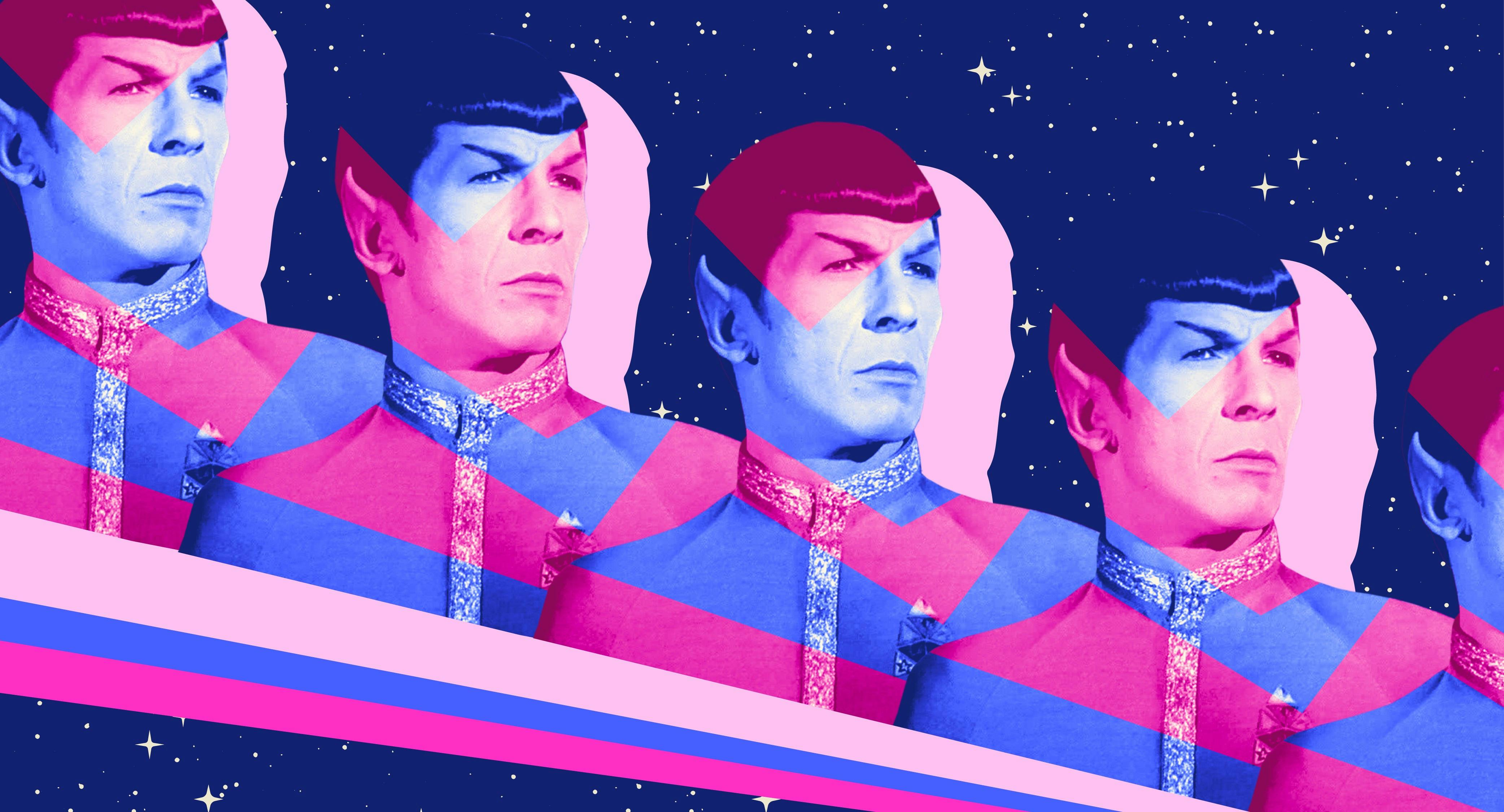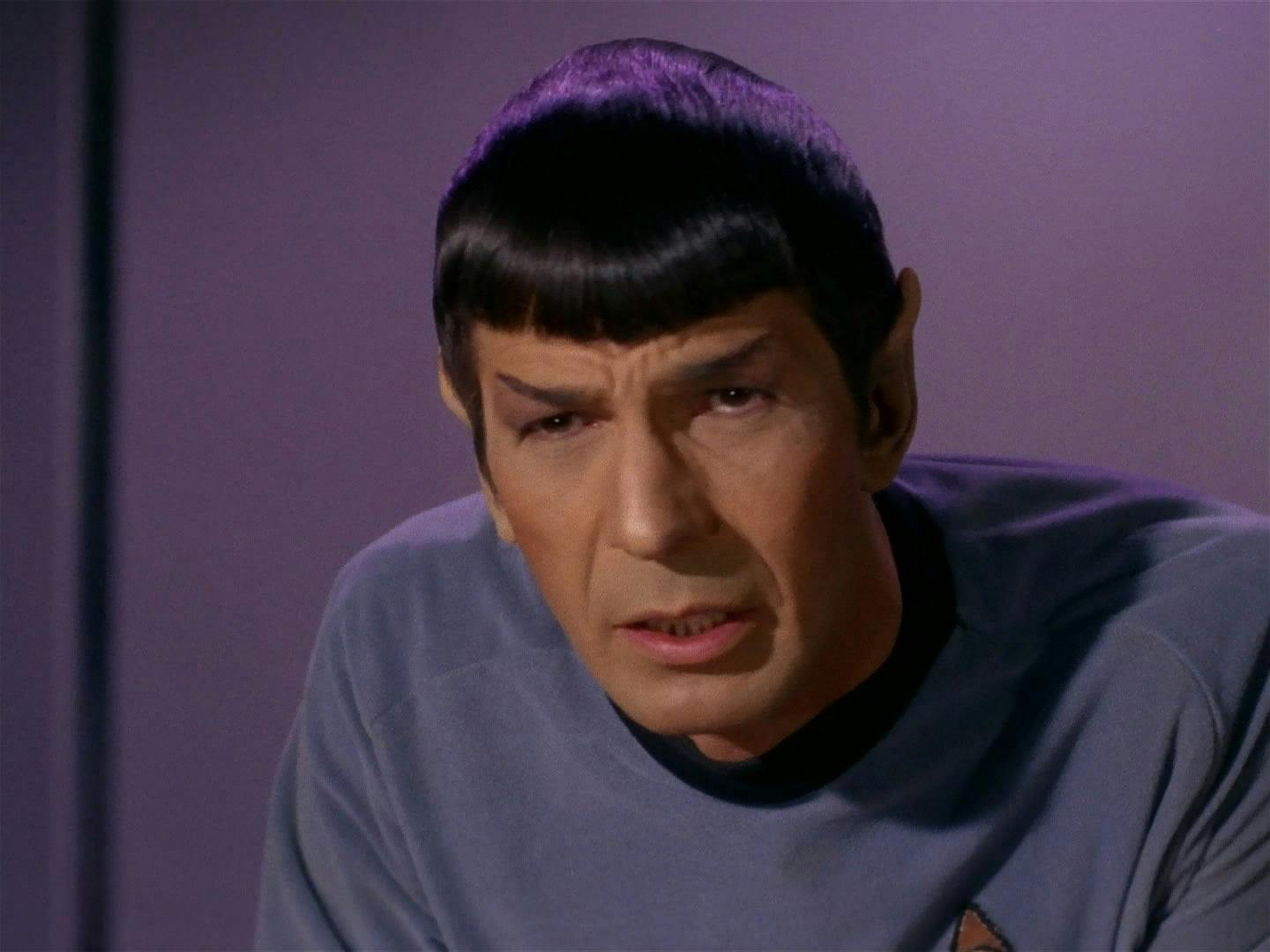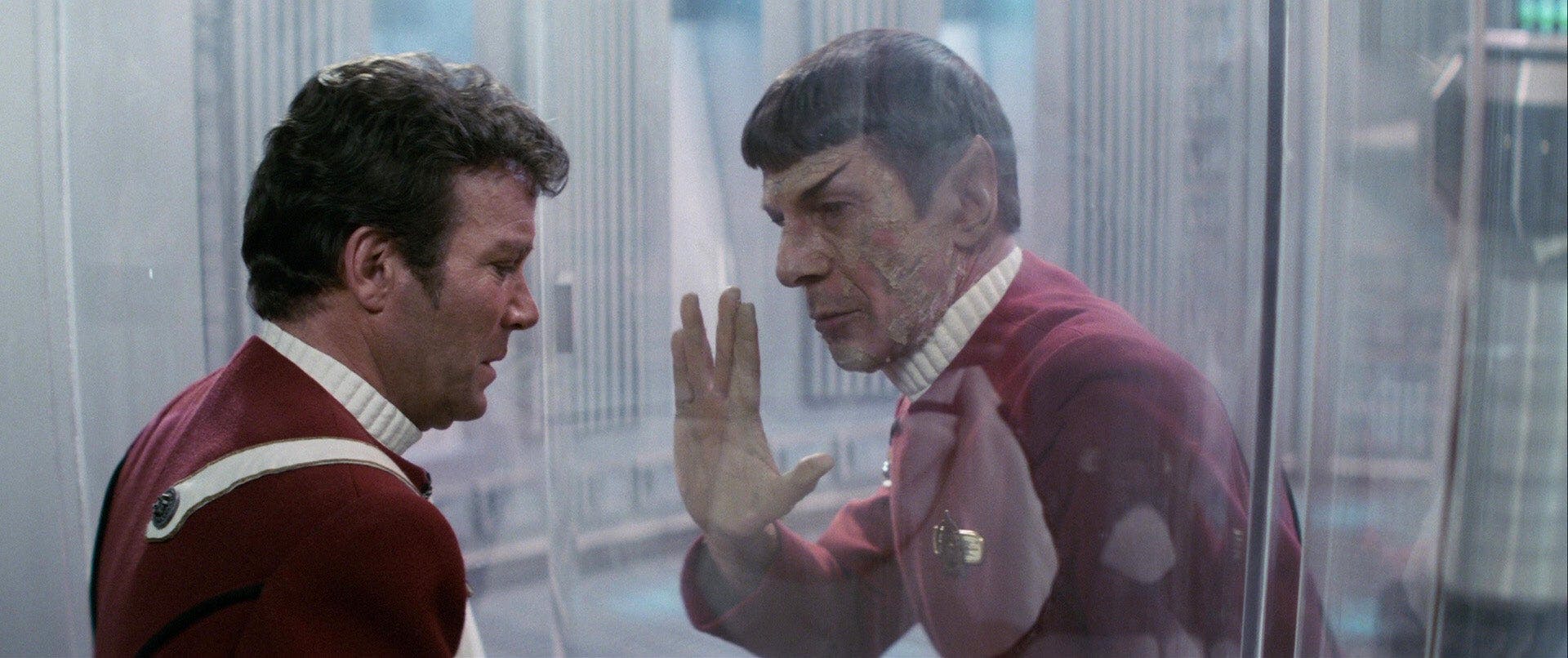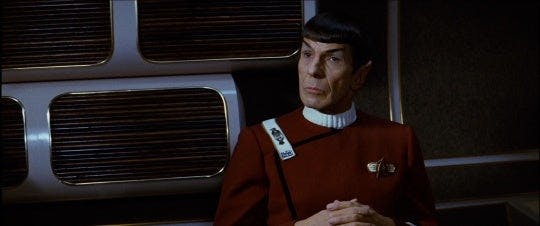Published Mar 26, 2022
Spock Taught Me to Accept Myself as a Transgender Man
As a “child of two worlds,” Spock felt like he belonged in neither. As an LGBTQ Mormon, I could relate.

StarTrek.com
Sometimes the moments that define your lives are the simplest ones, and you don’t realize their significance until you look back. For me, one of those came in early 2013. I was fifteen years old, and I’d just started an elective course at school: Writing Science Fiction.
“Today,” said my teacher, a self-proclaimed geek who usually taught chemistry, “we’re going to watch a clip from Star Trek to study character exposition.”
The scene she’d shown us was from “The Naked Time,” where Spock fails to control his emotions after being infected with the mysterious illness that uninhibited one’s personal boundaries. Most of the class — sci-fi buffs through and through — had grown up with Star Trek and understood the scene’s context. I had not. But I was enamored with this scene and especially with Spock. Something about the way he tried so hard to repress an inherent, but shameful part of himself spoke to me.

StarTrek.com
Around that time I’d realized that though I’d grown up Mormon, a religion that preaches compassion for LGBTQ people but views same-sex relationships and transitioning as sinful, I was transgender. To me, this meant that though I had been born female, I saw myself as male. If I were to admit that to anyone, even my family, I risked alienation from my church which I saw as my home. It was a predicament not identical, but similar in some ways to Spock’s dilemma as a half-Vulcan, half-human man who was raised in a culture where uncontrollable emotions would be considered shameful.
I was unable to get Spock’s internal conflict out of my mind for days and, after finding the TOS episodes online, began to watch the series. Over the rest of my sophomore year, I devoured the TOS seasons and even made a dent in The Next Generation. I was in love with the idea of a future where people sought to understand the unknown instead of fear it, where a sense of hope and awe seemed to illuminate the universe.
High school was often lonely for me. After ninth grade, my family moved hundreds of miles away from my hometown — around the time I started to suspect I was queer. I struggled to trust others at my new school, where around 84% of my classmates were also Mormon. I felt that if they knew I wished I had been born male, they would see me as lesser and no longer want to be around me. I repressed it as much as I could, but I still felt unworthy compared to my friends and family because I couldn’t get rid of it.
Star Trek gave me characters that helped me feel less alone. Through Data, I discovered the importance of going on our own journeys of what it means to be human. And through Soren, I empathize with how hard it can be to fight for your gender identity when your community responds with disgust. But Spock’s story is one that resonated with me the hardest and the longest as I grappled with my gender identity.

StarTrek.com
Several years later, as a college student, I entered counseling with a goal: get rid of whatever feelings made me wish that I had been born male so I could be “normal.” My counselor, however, had another idea: instead of viewing my transgender identity as broken, I could accept it as a part of myself that I wouldn’t be whole without.
My struggle to accept my trans identity as a Mormon shaped me in many meaningful ways, even in my darkest moments. It taught me to seek connection and compassion for others because I knew how painful the opposite could be. To quote Leonard Nimoy, “Because I have known despair, I value hope. Because I have tasted frustration, I value fulfillment. Because I have been lonely, I value love.”
For a long time, I couldn’t see how something that alienated me from my Mormon community could benefit my life in any way. But I had met my best friends through the queer community, including many other trans Mormons who taught me that I was not alone. I learned to look for those who seemed lonely and help them feel comfortable, because I had been that person many times at school at church. And through hours of prayer asking why God had made me transgender, I felt a peace that it had not been a mistake or a sin to overcome.
In the middle of my sophomore year, I made a decision. Although it wouldn’t be the easiest path, I wanted to transition to male. In the long run, I felt that it would bring me the fulfillment that I’d longed for my entire life. Thanks to a trans-affirming clinic, I received a testosterone prescription and became one of the first transgender men on hormone replacement therapy at the church-run college Brigham Young University.
During this time, I again reflected on Spock’s emotional journey throughout the Star Trek series. In TOS, especially the earlier episodes, Spock viewed any actions that reflected his half-human heritage as repulsive. But while he continues to deeply favor his Vulcan identity, he begins to let his human half in as well.
For example, he learns to value his friendship with Captain Kirk and Dr. McCoy to the extent that in his dying moments during Star Trek II: The Wrath of Khan, he reassures Kirk, “I have been, and always shall be, your friend.” That’s quite a change from Spock in "The Naked Time," when he admits that when he feels friendship for Kirk, he’s ashamed. As the series progressed, Spock learned to value emotional maturity alongside logic—and felt that, as he told Valeris, “logic is the beginning of wisdom, not the end.”

StarTrek.com
Like Spock’s respect for Vulcan philosophy, I still value the lessons Mormonism taught me. I grew up in a community that believes every person is deserving of love and that joy is the true purpose of life. For that, I will always be grateful.
But through Spock, I’ve learned that growing older means taking what you’ve learned and discovering for yourself what is right or wrong. Though the Mormon church views LGBTQ identities and relationships as a sin, I’ve learned more about unconditional love and courage through my queer friends than I ever had sitting in church. My religion taught me the value of prayer, and it was through prayer that I made the choice to transition.
As a “child of two worlds,” Spock was often made to feel like he belonged in neither. But in actuality, his human and Vulcan halves gave him unique insights that enriched those he came across. I hope it is the same for me and that, as a trans, religious person, I can use my experiences to help others feel less alone.
My faith looks a lot different than it did when I was younger. It still often changes, and I imagine it will for the rest of my life. But by standing at the crossroads of my religious and queer identities, however, it has truly become mine—a personal faith that brings comfort and is founded on the importance of kindness, bravery, and inherent worth. After so many years of pain, I finally feel content.

StarTrek.com
"Change," Spock once said, "is the essential process of all existence."
Maybe I would have come to these same conclusions about my faith and gender identity without Star Trek. Maybe not. But Spock’s example gave me the courage to explore a part of myself that I feared and find joy in it. Just as my transition changed me, so did Star Trek—and though difficult, it was all for the better.
AJ Winder (he/him) is a writer whose work has been featured in HuffPost Personal, The Outline, and Name + None. He was named a 2019 Pitch Wars mentee and currently works for an educational non-profit.

